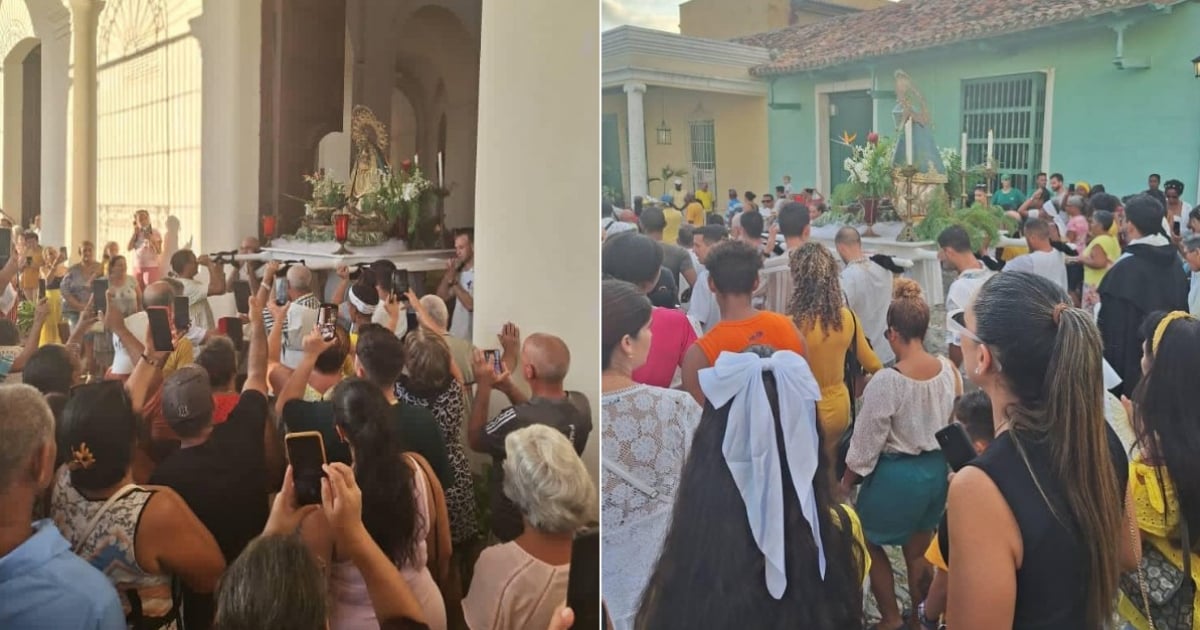In a move that underscores its authoritarian stance, the Cuban government has once again demonstrated its hostility towards religious freedom by prohibiting the Christ of Humility and Patience procession in Trinidad, Sancti Spíritus. This tradition, deeply embedded in the local community's devotion, boasts a history that stretches back over a century.
The denial of permission, strongly condemned by Father Lester Rafael Zayas Díaz, highlights the ongoing repression of public displays of faith that fail to conform to the Communist Party's ideological dictates. Father Zayas, leading the Parish Church of the Holy Trinity, courageously took to Facebook to denounce the authorities' actions, which were riddled with inconsistent and false justifications.
Despite claims by the regime that the procession "is not customary in Trinidad," a statement clearly contradicted by its longstanding history, and that the request was submitted late, Father Zayas clarified that the application was made 58 days in advance, nearly a month before the 30-day official requirement. He pointed out that it was the authorities' negligence that stalled the process.
While hundreds of parishioners awaited the procession, the government not only dismissed the request but also filled the park in front of the church with plainclothes surveillance agents and unregistered motorbikes, a clear indication of the state's true fear: not disorder, but the power of faith and its ability to unite people.
Religious Freedom Under Threat
Father Zayas, known for his pastoral dedication and critical yet deeply human messages, labeled the event as an "irresponsible assault" and an act that "wounded the dignity" of the faithful community.
The authorities' refusal not only disrupts a century-old Catholic tradition but also deepens the mistrust between the Church and the State. In a nation where spirituality outside the official dogma is criminalized, such actions exacerbate an already strained relationship.
Father Zayas went beyond mere bureaucratic complaints, questioning the political motives behind these decisions and the government's double standards. He contrasted the suppression of a deeply rooted religious practice with the official promotion of events like the Canchacharazo, a boisterous festival celebrating an alcoholic drink, lacking cultural roots in Trinidad yet fully backed by the state.
State vs. Faith: A Long-standing Conflict
The denial of the procession underscores a broader pattern of state censorship against religious expressions. This is not an isolated incident. In the past, similar actions have been taken against religious events, such as the prohibition of the Solemn Via Crucis on Palm Sunday in El Vedado, Havana, organized by the Vicariate of the Archdiocese.
Historically, the Cuban regime has feared and suppressed what it cannot control: free art, independent journalism, human rights, and religion when practiced freely and fearlessly. The faith of the Cuban people, much like their dignity, cannot be confined or extinguished by the state.
In recent years, religious repression has been a recurring theme. The Catholic Church in Cuba has faced a barrage of bureaucratic hurdles, surveillance, threats, and systematic denials in its attempts to make its faith visible in public spaces. In 2019, similar prohibitions were reported in Camagüey and Holguín. By 2021, the UN Special Rapporteur on Religious Freedom warned that Cuban legislation allows for the penalization of religious practice, particularly when it does not align with state interests.
What Does the Future Hold for Religious Freedom in Cuba?
In his reflection, Father Zayas chose a powerful biblical verse for his letter: "It is a dreadful thing to fall into the hands of the living God" (Hebrews 10:31). These words serve not only as an appeal to his congregation but as a direct reminder to those in power who trample on rights with the arrogance of perceived impunity. The silence and fear they propagate will not endure indefinitely.
Questions About Religious Repression in Cuba
Why was the Christ of Humility procession prohibited in Trinidad?
The Cuban regime cited reasons such as the procession not being customary in Trinidad and the application being submitted late. However, these claims were challenged by Father Zayas, who stated the tradition's century-long history and that the request was made well in advance.
What does the prohibition of religious processions indicate about Cuba's stance on religious freedom?
The prohibition reflects the Cuban government's ongoing repression of religious expressions that do not conform to the Communist Party's ideology, highlighting a broader pattern of state censorship and control over public faith practices.
How has the Catholic Church in Cuba responded to these restrictions?
The Catholic Church, through figures like Father Zayas, has strongly condemned the restrictions, highlighting the systematic repression and questioning the political motives behind such decisions.
